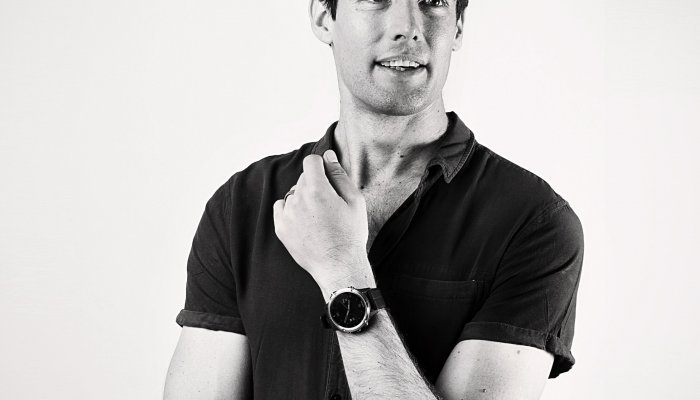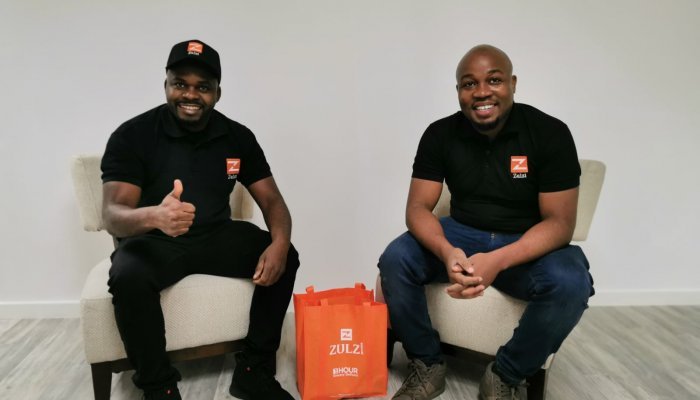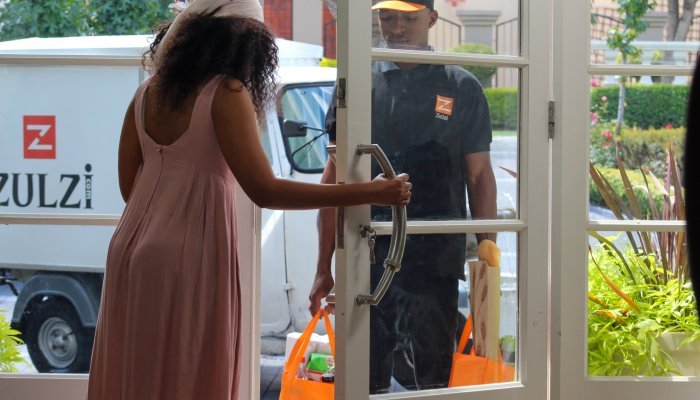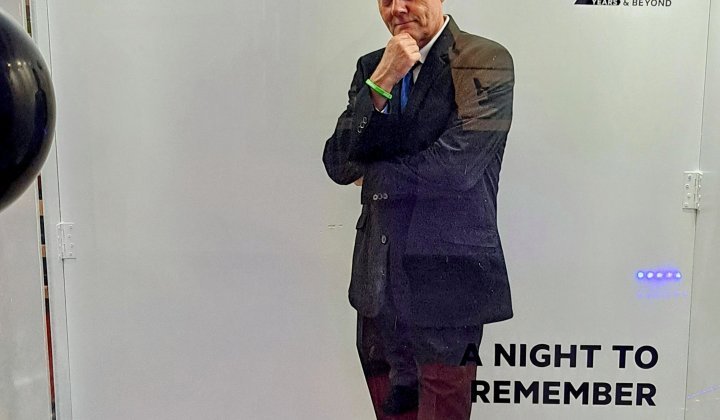- While working at FNB, Vutlharhi Donald Valoyi had a brainwave: start an e-commerce business to deliver goods and electronics to students.
- Spurring on Valoyi’s ideas was his brother’s university friend, Michael Netshipise, who was also working at FNB. The two became firm friends and encouraged one another’s business ideas.
- By 2014, both Valoyi and Netshipise had left FNB and began separate e-commerce ventures. The friends continued to collaborate.
- Valoyi spotted a gap in the market for a one-hour delivery service that could offer everything from groceries and food to electronics.
- Netshipise was completely sold on the idea, so Valoyi brought him on as his partner. Together they started growing the platform.
- Zulzi went live in September 2016.
With 2020’s surge in digital shopping, the man at the helm of this e-commerce venture, Vutlharhi Donald Valoyi, has become a poster child for e-commerce success. A former FNB software developer with a degree in applied mathematics, Valoyi and co-founder Michael Netshipise (the firm’s chief technical officer) spent six months building the Zulzi platform and another half a year earning their dues doing deliveries as the company worked to entrench itself in an e-commerce segment renowned for poor penetration and low margins. They stuck with it, fine-tuning their offering to the point that, by 2018, they were recording healthy growth figures.
When Covid-19 struck, their platform and their business model – which has just been buoyed by a multimillion-rand funding injection – were up to the task of servicing the influx of customers driven online.
“Covid was a big one for every business out there. For us it was positive,” says Valoyi. “To give an idea, what we achieved by June 2020, we were expecting in 2021. We thought we’d reach R30 million in a month in January 2022. Covid accelerated our trajectory by about two years.”
The R30 million golden number is, coincidentally, also the exact amount of funding Zulzi secured early in 2020 from a JSE-listed investor. For now, Valoyi declines to name the company, saying “we are still not saying at this stage”, but what he will share is that the R30 million will be directed towards “improving our tech; that is number one. Number two is we want to start penetrating the lower LSMs. Currently, we are big on the higher LSMs, but for us to really make it big, we need to start catering for the needs of the lower LSMs. The biggest part of that funding will allow us to address that.”
Equal opportunity access
There are some key challenges to overcome if this ambition to broaden Zulzi’s market penetration into the middle and lower-income segments is to be achieved. “When I look at our platform, for instance when we go into the middle and lower LSMs, we have to look at the pricing. That has to be right,” says Valoyi. “We can’t charge the same delivery fee we are charging in Fourways to someone in Alexandra.”
Issues of pricing, he believes, is a greater challenge in this segment than logistics or even access to hardware and data. “They do have smartphones, and they do have access to the internet,” says Valoyi. “That hurdle doesn’t exist anymore.” Instead, the real consideration should be around “making a product that fits their needs and which gets the pricing right. So we are looking at ways to address how to navigate the townships and make sure we can deliver to the right address, how we deal with cash on delivery, and collect in a way that is safe for us.”
Giving Zulzi an upper hand in addressing these complex challenges is the fact that most of their workforce hail from the townships, from drivers and shoppers to admin staff. And they can offer tremendous insights as to how best to navigate these areas. Fortunately, Zulzi is inclined to listen.
People at the core
While the platform is driven by technology and enabled by data, slotting neatly into a fourth industrial revolution world, what sets Zulzi apart is that it remains at heart a business for people. Valoyi believes that having employees on board who buy into the vision will become increasingly important as the business moves to the next level.
“If you don’t have dedicated people who want to work for you, then you will suffer,” he says. “People must feel the weight on their shoulders. We have to teach everyone from a driver to a shopper that they have a role to play.”
At the same time, Valoyi strives to show the same loyalty to his people. During lockdown, Zulzi was approached by the likes of Uber, Avis and school transport companies, all looking to partner and create opportunities for their drivers. Zulzi took on many of these drivers but paid careful attention to ensuring that all drivers working for Zulzi got enough work to take home a decent wage.
“We protect the platform in such a way that we aren’t flooded by drivers,” explains Valoyi. “Each day we look at the number of orders that we have to do in a day, we look at the transport and the store, and then we place our drivers according to that. So, at the end of the day, our drivers are still able to make some good money. Our drivers make roughly R4,000 a week, and we want to keep it like that.”
This human focus underpins the Zulzi approach to recruiting and retaining good people, explains Valoyi. “I personally go to their homes to talk to them. That is a sign that you really care about your people. And so we continue to attract the best talent.”
This focus on skills, together with a people-centric approach to leadership, an affinity for collaborative partnerships, and a combination of quality and the promise of value proved the magic combination that attracted mega-retailer Checkers when the group was looking to enter the online grocery delivery space. “They paid us a huge amount of money to develop their apps,” says Valoyi. The eight-month journey Zulzi walked with Checkers to develop the Sixty60 app was based on the formation of a solid partnership and the vision of “two young, smart guys who were young and energetic and wanted to change things in the organisation”, recalls Valoyi. “It’s been an incredible journey.”
Similarly, Valoyi credits his friendship with partner Netshipise as being of central importance to the birth and development of the business, and he’s not afraid to single out “some of the smartest people you can find” within the company. The likes of Zama Nkosi, head of business development, and Sijabuliso Ceejay Ndlovu, head of marketing, both dynamic, young black women with impeccable credentials. Or exceptional tech talent such as Bernard Swart and Hugo Greyvenstein.
Holding on to this talent will be key for a company with naked ambitions to become the “biggest grocery platform in Africa” and “the Amazon of Africa”. Valoyi knows only too well that the business cannot afford to hire the wrong people or scale up too quickly at this delicate stage.
“I believe it’s important for a start-up to not focus on scaling, rather focus on making sure the platform and the tech work well,” says Valoyi. Many would argue that they have, already, achieved that. And with a healthy cash injection to solidify their technology credentials, it is likely that Covid-19 may conspire to accelerate more of Zulzi’s best-laid plans.
A boost for e-commerce in SA
The impact of lockdown measures has proved punishing to many industries, but for those in the business of e-commerce, it has been a positive game-changer.
Speaking during the eCommerce Virtual Summit 2020, hosted by Insaka eCommerce Academy and PayFast, bidorbuy CEO Craig Lubbe noted that in 2020, it was not “uncommon to see even established retailers seeing double-digit growth in the e-commerce channels. Some even see triple-digit growth.”
Not surprising when you consider the sudden uptick in consumers choosing to shop online. According to payment gateway PayFast, transactions over January to June 2020 in South Africa showed a 139% surge in e-commerce activity among 18 to 24-year-olds, a 55% hike among 25 to 34-year-olds, and a notable 62% hike among those aged 55 to 64, when compared with 2019 figures.
Insaka founder, Warrick Kernes, believes this uptake is “accelerating e-commerce in South Africa years ahead. Right now, people are being forced to rely on Zulzi for their groceries or to try shopping online for the first time, and just when they taste that convenience, they are likely to do it again. I believe people’s buying habits will fundamentally change.”
Arthur Goldstuck, founder of technology market research firm World Wide Worx, agrees: “The bump we saw [in 2020] will not settle back to the old normal. Our forecast was that we would see R20 billion in online retail sales in South Africa [in 2020]. The number for 2018 was R14 billion and that made up 1.4% of total retail in South Africa, with total retail having been just over the R1 trillion mark. As a result of this crisis, I think that total retail is going to slump this year, and that means that, as a percentage, e-commerce is going to be far higher. There is a good chance we will hit the 2% mark, which we had originally forecast by 2022,” he says.
The Covid-19 crisis is an inflection point for both individuals and business strategies, stresses Goldstuck. “Beyond this crisis the digital arena will be central to our lives and our businesses, and we have to understand that business will never be the same again.”
For the e-commerce sector, which has traditionally lacked acceptance from mainstream retailers, the shakeup caused by the pandemic has also given much-needed validity to online businesses.
We struggled a lot for acceptance at this level in the early days, says Zulzi founder, Vutlharhi Donald Valoyi. “In the past 12 months, I’ve seen the way they [big retailers] think about this change. Guys like Checkers have opened up to say, ‘How can we work with these guys?’ They are seeing more value, and the investments they are making into the sector make sense.”
This, believes Valoyi, is key for the future of both retail and e-commerce. “In the online space, you have to invest and drive the change you want to see in the future. I’m hoping to see big guys put money in for the future.”










